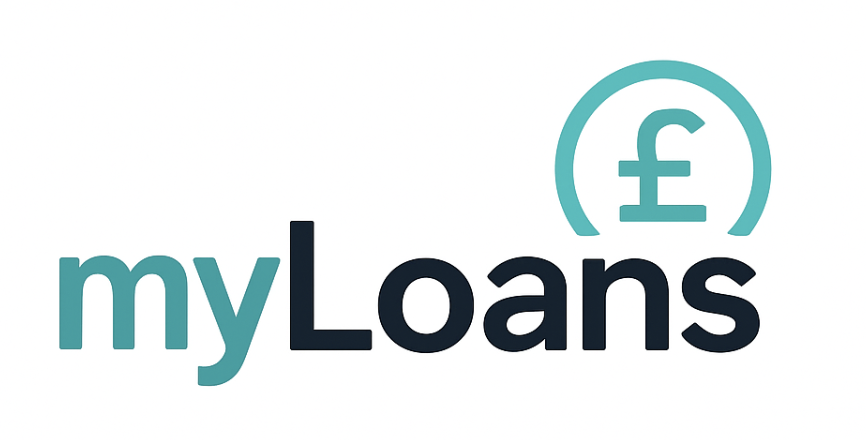Mortgage Types: A Comprehensive Guide
What is a Mortgage?
A mortgage is a type of loan specifically designed to help you buy a property. When you take out a mortgage, you borrow money from a lender, such as a bank or building society, and repay it in monthly instalments, usually over 20–35 years.
A mortgage consists of:
-
The principal – the amount borrowed.
-
Interest – the cost of borrowing, set as a percentage of your loan.
-
Fees and charges – such as arrangement fees or early repayment charges.
Your monthly payment may also include other costs, such as building insurance, depending on your agreement.
Interest rates in the UK are influenced by the Bank of England base rate. When the base rate rises, mortgage rates usually follow, which means your monthly payments can go up depending on the type of mortgage you have.
Main Types of Mortgages in the UK
Fixed-Rate Mortgages
A fixed-rate mortgage means your interest rate stays the same for a set period, usually 2, 3, 5, or even 10 years. Your monthly payments will not change during this time, making it easier to budget.
Pros: Stability and protection from rising interest rates.
Cons: You could be locked into a higher rate if market rates fall.
Tracker Mortgages
Tracker mortgages follow the Bank of England base rate, plus a set percentage. If the base rate changes, your mortgage payment will go up or down accordingly.
Pros: Benefit when rates are low.
Cons: Payments can rise if interest rates increase.
Standard Variable Rate (SVR) Mortgages
An SVR is the default interest rate you move onto once your fixed or tracker deal ends. SVRs are set by the lender and usually higher than other rates.
Pros: Flexibility, often no early repayment charges.
Cons: Rates can change at the lender’s discretion, making payments unpredictable.
Discount Mortgages
A discount mortgage gives you a reduction on the lender’s standard variable rate for a set period. For example, SVR minus 1%.
Pros: Cheaper initial repayments.
Cons: Payments can rise if the SVR increases.
Interest-Only Mortgages
With an interest-only mortgage, you only pay the interest each month, not the loan itself. At the end of the term, you must repay the full amount borrowed, usually through savings, investments, or selling the property.
Pros: Lower monthly repayments.
Cons: Higher risk, as you must have a clear plan to repay the capital.
Offset Mortgages
An offset mortgage links your savings account to your mortgage. The amount you have in savings is offset against your mortgage balance, so you only pay interest on the difference.
Pros: Can reduce the amount of interest paid and shorten your mortgage term.
Cons: You won’t earn interest on your savings while they’re offset.
Government Schemes and Specialist Mortgages
In addition to mainstream mortgages, there are products designed to support specific groups:
-
First-time buyer mortgages often come with competitive rates and lower deposit requirements.
-
Help to Buy (closed to new applicants but still relevant for existing borrowers) offered equity loans for new-builds.
-
Shared Ownership mortgages allow you to buy a share of a property and pay rent on the rest.
-
Guarantor or family mortgages let a family member use savings or property equity as security.
How to Choose the Right Mortgage
The right mortgage depends on your financial circumstances, deposit size, and long-term goals.
-
Assess your budget – look at your income, savings, and existing debts.
-
Check your credit score – lenders use this to decide if you’re eligible and what rates you can get.
-
Decide how long you’ll stay in the property – shorter stays may suit a tracker or discount mortgage, while long-term buyers often prefer fixed rates.
-
Compare lenders – don’t just go to your bank. Mortgage brokers can access deals from across the market.
Costs to Consider
Beyond interest rates, be aware of:
-
Arrangement fees – often £1,000 or more.
-
Valuation fees – charged by lenders to assess the property’s value.
-
Legal fees – solicitors handle the legal side of buying a home.
-
Stamp Duty Land Tax (SDLT) – depending on property price and whether you’re a first-time buyer.
The Application Process
When applying for a mortgage in the UK, you’ll need documents such as payslips, bank statements, and proof of ID. Lenders will also check your affordability based on your income and expenses. Getting a mortgage in principle before house-hunting can give you a stronger position with sellers.
Once you apply, the lender will carry out underwriting checks, a property valuation, and, if successful, make a formal mortgage offer. From there, your solicitor will finalise the purchase.
Final Thoughts
Understanding the different types of mortgages in the UK is the first step toward making a confident and informed decision. Whether you choose a fixed-rate mortgage for stability, a tracker mortgage for flexibility, or a more specialist product, the key is to align your choice with your financial situation and long-term plans.
If you’re unsure, speaking with an independent mortgage broker can help you find the best deal and navigate the complexities of the UK mortgage market.
Alternatives to Payday Loans | Safer Borrowing Options
Payday loans are often marketed as a quick fix for cash emergencies, but they are not the only option available. Whether you’re facing an unexpected bill, car repair, or temporary cash shortfall, there are several alternatives to payday loans that may offer lower...
Payday Loans with Bad Credit | Direct Lender Options
If you’ve been refused credit elsewhere and are wondering whether you can still get a payday loan with bad credit, you’re not alone. Thousands of people in the UK search every month for options like “payday loans with bad credit” or “direct lender payday loans”. While...
Personal Loan Debt Consolidation UK – Is It Right for You?
Juggling multiple credit cards, overdrafts, or loans can be stressful and expensive. A debt consolidation loan allows you to combine everything into a single monthly repayment, often at a lower interest rate. In 2025, UK lenders from high street banks to online...
Emergency Loans UK – How to Borrow Fast in 2025
When an urgent expense hits — like car repairs, medical bills, or a broken boiler — quick access to funds can be essential. In 2025, emergency loans in the UK provide a way to borrow fast, with some lenders offering same-day decisions and payouts. This guide explains...
Top 10 Personal Loan Providers UK 2025 – Rates, Features & Eligibility
The UK personal loan market in 2025 offers more choice than ever, with banks, supermarkets, online lenders, and credit unions all competing for borrowers. The best deal for you depends on your credit score, loan size, and repayment term — but comparing providers side...
Best Debt Consolidation Loans UK 2025 | Top Options
Managing multiple debts can feel overwhelming, especially with credit cards, overdrafts, and personal loans all charging different interest rates. A debt consolidation loan can simplify your finances by rolling everything into one fixed monthly repayment — often at a...
Best Bad Credit Loans UK 2025 – Top Lenders Compared
Having a poor credit score, CCJs, or past defaults doesn’t mean borrowing is out of reach. In 2025, several UK lenders specialise in products designed for people with bad credit — offering smaller loans, flexible repayment terms, and eligibility checks that won’t harm...
Home Repair Loans UK – How to Cover Unexpected Costs in 2025
A leaking roof, broken boiler, or urgent plumbing issue can quickly turn into an expensive problem — often when savings aren’t available. In 2025, home repair loans in the UK provide a way to spread the cost of essential fixes into manageable monthly repayments. This...
Green Energy Loans UK – How to Finance Eco-Friendly Home Improvements in 2025
Eco-friendly upgrades such as solar panels, insulation, heat pumps, and EV chargers can cut energy bills and boost property value — but they require a significant upfront investment. In 2025, green energy loans in the UK provide a way to spread the cost of sustainable...
Moving House Loans UK – How to Cover Relocation Costs in 2025
From deposits and removal vans to solicitor fees and new furniture, moving house in the UK can quickly add up to thousands of pounds. Not everyone has savings set aside to cover these costs upfront. In 2025, moving house loans in the UK provide a way to spread...
Education Loans UK – How to Fund Studies and Professional Courses in 2025
Not all education in the UK is covered by government student finance. Postgraduate degrees, professional qualifications, and private training often require self-funding — with tuition fees and course costs running into thousands of pounds. In 2025, education loans in...
Holiday Loans UK – How to Spread the Cost of Travel in 2025
Holidays can be some of the most rewarding experiences of the year, but they often come with a price tag that’s hard to cover upfront. From flights and hotels to all-inclusive packages and once-in-a-lifetime trips, the costs can add up quickly. In 2025, holiday loans...
Best Personal Loans UK 2025 – Top Lenders Compared
The UK personal loan market in 2025 is more competitive than ever, with high street banks, supermarkets, online lenders, and credit unions all offering products to suit different needs. Choosing the right provider can save you hundreds in interest and ensure...
Medical Loans UK – How to Finance Healthcare Costs in 2025
While the NHS covers most essential treatment, waiting lists, private care, and specialist procedures mean many people face out-of-pocket medical expenses. From dental work and fertility treatment to cosmetic surgery and urgent private healthcare, costs can run into...
Car Loans UK – Personal Loan vs Hire Purchase vs PCP in 2025
Buying a car in 2025 usually means more than just choosing the right vehicle — it also means deciding how to pay for it. In the UK, the three main options are a personal loan, hire purchase (HP), or personal contract purchase (PCP). Each has its own advantages,...
















